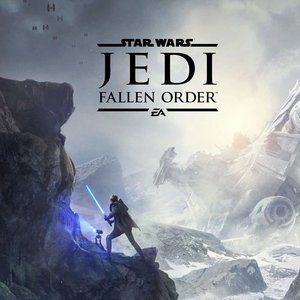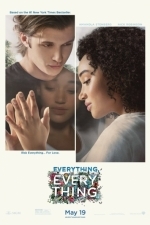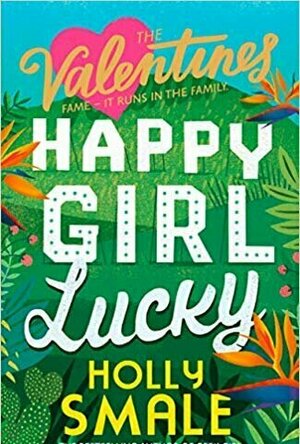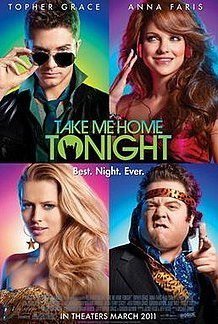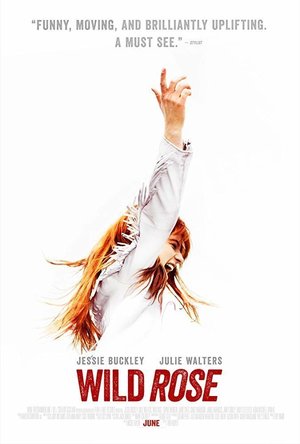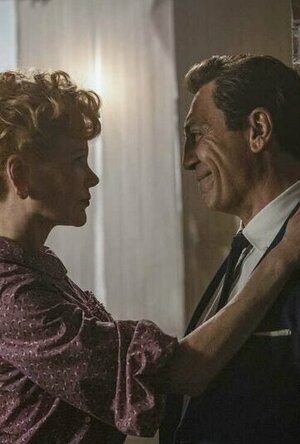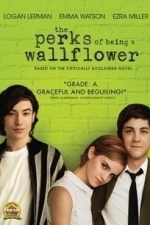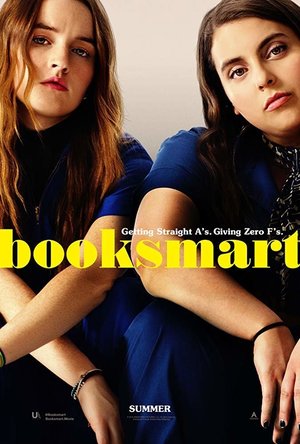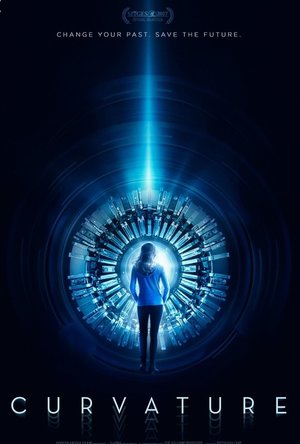Search
Search results
LeftSideCut (3776 KP) rated the PlayStation 4 version of Star Wars Jedi: Fallen Order in Video Games
Apr 7, 2020
I don't have much negativity to direct at Star Wars Jedi: Fallen Order, it's a pretty solid single player adventure that expands on Star Wars lore to a competent degree, and had me absorbed for the most part.
For a start, the game looks amazing. The settings are full of colour one second, and then harsh and cold the next, as you traverse forest planets like Kashyyyk, before navigating through Empire facilities.
The game is set between Episodes 3 and 4 of the movie canon, and borrows asthethic elements from both the original and prequel trilogies. It's interesting to be in the middle of a universe that has recently seen the destruction of the Jedi Order.
The gameplay is also great. The exploration and parkour elements are reminiscent of the Uncharted series, but adds enough Force stuff to make it not feel stale, and the combat is thrilling. JFO is genuinely challenging at times, especially during boss battles. You have to approach each encounter with patience and some sort of plan, or you'll find yourself struggling. It's not to dissimilar from Dark Souls in that respect.
By the time I had finished the campaign, and went through areas again in my pursuit of Platinum, I had unlocked all skills, and combat became easier, at times, really giving you the feel of a Jedi Knight.
You can also build and edit your own lightsaber, which is a nice touch.
The story is ok, largely about finding a McGuffin to help restore the Jedi, but this is one of those games that is all about the journey. The characters you meet along the way are all fleshed out to an acceptable degree, and BD-1, your droid companion for the campaign, is endearing and feels essential to the way the story pans out.
My main criticism is that it didn't have a huge amount of replay value once I was done. After finishing the campaign, it didn't take a massive amount of time to mop up everything else, and that was that, but it's forgivable considering how tight and polished the rest of the game feels.
Star Wars Jedi: Fallen Order is another shining example of how important single player games are in an age where multiplayer games reign supreme. Go and play it.
For a start, the game looks amazing. The settings are full of colour one second, and then harsh and cold the next, as you traverse forest planets like Kashyyyk, before navigating through Empire facilities.
The game is set between Episodes 3 and 4 of the movie canon, and borrows asthethic elements from both the original and prequel trilogies. It's interesting to be in the middle of a universe that has recently seen the destruction of the Jedi Order.
The gameplay is also great. The exploration and parkour elements are reminiscent of the Uncharted series, but adds enough Force stuff to make it not feel stale, and the combat is thrilling. JFO is genuinely challenging at times, especially during boss battles. You have to approach each encounter with patience and some sort of plan, or you'll find yourself struggling. It's not to dissimilar from Dark Souls in that respect.
By the time I had finished the campaign, and went through areas again in my pursuit of Platinum, I had unlocked all skills, and combat became easier, at times, really giving you the feel of a Jedi Knight.
You can also build and edit your own lightsaber, which is a nice touch.
The story is ok, largely about finding a McGuffin to help restore the Jedi, but this is one of those games that is all about the journey. The characters you meet along the way are all fleshed out to an acceptable degree, and BD-1, your droid companion for the campaign, is endearing and feels essential to the way the story pans out.
My main criticism is that it didn't have a huge amount of replay value once I was done. After finishing the campaign, it didn't take a massive amount of time to mop up everything else, and that was that, but it's forgivable considering how tight and polished the rest of the game feels.
Star Wars Jedi: Fallen Order is another shining example of how important single player games are in an age where multiplayer games reign supreme. Go and play it.
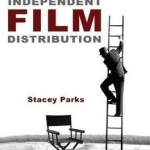
The Insider's Guide to Independent Film Distribution
Book
Innovation in technology means that almost anyone can make an independent film these days. Although...
Emma @ The Movies (1786 KP) rated Everything, Everything (2017) in Movies
Sep 25, 2019
Eighteen-year-old Maddy's world is small. It's the size of a house.
Maddy has a rare form of SCID, an immuno-deficiency disease that means she can't leave the house because a chance encounter could kill her. The only people she sees are her mother, her nurse Carla, Carla's daughter Rosa and members of an online support group.
When as family move in next door, Maddy is bewitched by the son. He's friendly, he's funny, and he's handsome. Communicating through their bedroom windows, they exchange numbers and start texting. Carla notices the difference in Maddy, and is persuaded to let Olly in the house, but only under her condition that they stay on opposite sides of the room.
Maddy wants to see the ocean more than anything else in the world. She has to see what's out there to truly know she's alive, even if it kills her. But when she buys two plane tickets to Hawaii for herself and Olly, she doesn't realise how much it will change her life.
This one is based on the YA novel Everything, Everything by Nicola Yoon... you guessed it, haven't read this one either. I didn't know anything about it when I went to see it, mainly picked this one up because of the fact it was book related.
This was a beautiful film. (Yes, of course I cried) There's friendship, love, heartache. One of the problems was that there were really only two ways this film was going, and writers/movie makers aren't quite a cynical about things as I am when it comes to endings, so there wasn't really much chance that she was going to die for love.
Amandla Stenberg in the lead also wasn't quite my cup of tea. She played the naive side of the character well, but at the beginning when she was narrating... I just didn't find her a very good orator.
The subject matter was very different, and I really think the diversity in YA books has taken a massive step in that respect. It's touching on topics that very rarely see mainstream attention and that's a great thing. It also does one of my favourite things, which is enticing people to pick up books, so this one is a winner all round for me.
Maddy has a rare form of SCID, an immuno-deficiency disease that means she can't leave the house because a chance encounter could kill her. The only people she sees are her mother, her nurse Carla, Carla's daughter Rosa and members of an online support group.
When as family move in next door, Maddy is bewitched by the son. He's friendly, he's funny, and he's handsome. Communicating through their bedroom windows, they exchange numbers and start texting. Carla notices the difference in Maddy, and is persuaded to let Olly in the house, but only under her condition that they stay on opposite sides of the room.
Maddy wants to see the ocean more than anything else in the world. She has to see what's out there to truly know she's alive, even if it kills her. But when she buys two plane tickets to Hawaii for herself and Olly, she doesn't realise how much it will change her life.
This one is based on the YA novel Everything, Everything by Nicola Yoon... you guessed it, haven't read this one either. I didn't know anything about it when I went to see it, mainly picked this one up because of the fact it was book related.
This was a beautiful film. (Yes, of course I cried) There's friendship, love, heartache. One of the problems was that there were really only two ways this film was going, and writers/movie makers aren't quite a cynical about things as I am when it comes to endings, so there wasn't really much chance that she was going to die for love.
Amandla Stenberg in the lead also wasn't quite my cup of tea. She played the naive side of the character well, but at the beginning when she was narrating... I just didn't find her a very good orator.
The subject matter was very different, and I really think the diversity in YA books has taken a massive step in that respect. It's touching on topics that very rarely see mainstream attention and that's a great thing. It also does one of my favourite things, which is enticing people to pick up books, so this one is a winner all round for me.
Ivana A. | Diary of Difference (1171 KP) rated Happy Girl Lucky (The Valentines, #1) in Books
Feb 3, 2020
<a href="https://diaryofdifference.com/">Blog</a>; | <a href="https://www.facebook.com/diaryofdifference/">Facebook</a>; | <a href="https://twitter.com/DiaryDifference">Twitter</a>; | <a href="https://www.instagram.com/diaryofdifference/">Instagram</a>; | <a href="https://www.pinterest.co.uk/diaryofdifference/pins/">Pinterest</a>;
#1 <a href="https://www.goodreads.com/review/show/2685992062">Happy Girl Lucky</a> - ★★★★★
<img src="https://gipostcards.files.wordpress.com/2019/02/book-review-title.png?w=636"/>;
<b> I am hosing a GIVEAWAY on my instagram page, ending on 22nd February 2019. Enter for a chance to win 5 signed copies with 5 pop sockets! </b>
Happy Girl Lucky is the first book from The Valentines Series. This is a story about a famous family, The Valentines, who have been Hollywood stars for ages. Hope is one of the daughters of the famous couple, but she grows up without all that paparazzi attention and hype. It is a family rule not to involve their children into the famous world until they are sixteen. Hope can’t wait to turn sixteen and start living this amazing life.
Hope spends her teenage years as a normal girl – she steals clothes from her sisters and makes movie scenarios in her head. She reads her horoscope every day and knows what the magazines say is true. She is naive and funny and so unique. And when one day, her horoscope says she is on her way to finally meet her true love, she has to make everything possible to make this come true.
And when she meets this boy, we follow Hope’s adventures from touring London, to travelling to the US, to making decisions she never thought she could make. I loved how we are with Hope every minute of her journey and we watch her slowly grow and make us giggle.
Even though Hope gives the life of this story, and makes us all want to be friends with her, all of the other characters have their own little unique spark, which I loved so much.
A wonderfully written story, but also a very meaningful one. Holly Smale managed to perfectly capture some of the issues that some teenage girls are facing today. Living their own reality while their family lives a completely different world is not so uncommon, and girls need to know this. Sometimes, we wake in a reality we don’t know and think we are the ones to blame, but there is nothing wrong with you. All you ladies out there, you need to hear this. There is nothing wrong with you. Don’t let anyone tell you otherwise. You are unique, and you should believe in what you are, who you are, and what makes you truly happy. And through Hope’s story, we can understand this so well, and I am forever grateful!
A fun and entertaining story, meant to capture all the teenage hearts out there. This is definitely a must-read for every girl out there, to find her true self and be happy for what she truly is.
<a href="https://diaryofdifference.com/">Blog</a>; | <a href="https://www.facebook.com/diaryofdifference/">Facebook</a>; | <a href="https://twitter.com/DiaryDifference">Twitter</a>; | <a href="https://www.instagram.com/diaryofdifference/">Instagram</a>; | <a href="https://www.pinterest.co.uk/diaryofdifference/pins/">Pinterest</a>;
#1 <a href="https://www.goodreads.com/review/show/2685992062">Happy Girl Lucky</a> - ★★★★★
<img src="https://gipostcards.files.wordpress.com/2019/02/book-review-title.png?w=636"/>;
<b> I am hosing a GIVEAWAY on my instagram page, ending on 22nd February 2019. Enter for a chance to win 5 signed copies with 5 pop sockets! </b>
Happy Girl Lucky is the first book from The Valentines Series. This is a story about a famous family, The Valentines, who have been Hollywood stars for ages. Hope is one of the daughters of the famous couple, but she grows up without all that paparazzi attention and hype. It is a family rule not to involve their children into the famous world until they are sixteen. Hope can’t wait to turn sixteen and start living this amazing life.
Hope spends her teenage years as a normal girl – she steals clothes from her sisters and makes movie scenarios in her head. She reads her horoscope every day and knows what the magazines say is true. She is naive and funny and so unique. And when one day, her horoscope says she is on her way to finally meet her true love, she has to make everything possible to make this come true.
And when she meets this boy, we follow Hope’s adventures from touring London, to travelling to the US, to making decisions she never thought she could make. I loved how we are with Hope every minute of her journey and we watch her slowly grow and make us giggle.
Even though Hope gives the life of this story, and makes us all want to be friends with her, all of the other characters have their own little unique spark, which I loved so much.
A wonderfully written story, but also a very meaningful one. Holly Smale managed to perfectly capture some of the issues that some teenage girls are facing today. Living their own reality while their family lives a completely different world is not so uncommon, and girls need to know this. Sometimes, we wake in a reality we don’t know and think we are the ones to blame, but there is nothing wrong with you. All you ladies out there, you need to hear this. There is nothing wrong with you. Don’t let anyone tell you otherwise. You are unique, and you should believe in what you are, who you are, and what makes you truly happy. And through Hope’s story, we can understand this so well, and I am forever grateful!
A fun and entertaining story, meant to capture all the teenage hearts out there. This is definitely a must-read for every girl out there, to find her true self and be happy for what she truly is.
<a href="https://diaryofdifference.com/">Blog</a>; | <a href="https://www.facebook.com/diaryofdifference/">Facebook</a>; | <a href="https://twitter.com/DiaryDifference">Twitter</a>; | <a href="https://www.instagram.com/diaryofdifference/">Instagram</a>; | <a href="https://www.pinterest.co.uk/diaryofdifference/pins/">Pinterest</a>;
Gareth von Kallenbach (980 KP) rated Take Me Home Tonight (2011) in Movies
Aug 7, 2019
If you’re planning an 80’s party anytime soon, make sure to download the soundtrack to Take Me Home Tonight. The opening montage alone reminded me of everything I loved about the 80’s. It also gave us a glimpse of Matt Franklin’s high school years. Matt, played by Topher Grace, was the kid voted as “Smartest” in his class, one who existed on the outer fringes of high school popularity, who always had his eye on the most popular girl in school, Tori Fredreking, but could never muster up the courage or find that “in” to catch her attention.
Unsure of where his life is taking him, Matt decides to take a break from MIT during the summer of ’88 and ends up working at Suncoast Video. Of course, who should come strolling in to his store one day but Matt’s high school crush herself. Hoping to impress her, Matt ditches his Suncoast nametag, and tells Tori, played by Teresa Palmer (a deadringer for Kristen Stewart, if Kirsten were blond and more animated), that he works for Goldman-Sachs. Tori’s a banker herself, it turns out, and her curiousity is finally piqued and she encourages him to attend Kyle Masterson’s annual Labor Day party.
Matt relies on his twin sister Wendy, played by Anna Faris, and their best friend Barry, an intense Dan Fogler, to help him build on this “in” and finally get Tori’s phone number. But Matt isn’t the only one having to deal with the confusing transition into adulthood. Wendy has to decide if she wants to pursue her Masters or settle down with her boyfriend Kyle, while Barry just got fired from his car salesman job. The three of them decide to attend the end-of-summer party thrown by Wendy’s boyfriend Kyle, played by Parks & Rec’s Chris Pratt, all with the intent of “living in the now.” Apparently living in the now means commiting grand theft auto, experimenting with cocaine, perpetuating a lie and crashing a bankers’ party.
Despite the silly hijinks, Matt isn’t hard to root for, especially given Topher Grace’s signature sympathetic awkwardness. Fogler’s comic foil to Grace’s straight-man dances precariously along the line between funny and WTH? When the movie about Sam Kinnison’s life is ever made, Fogler should be given serious consideration.
There’s good chemistry between the cast and there’s just enough sweet romance to balance out the outrageous situations. Silly, predictable entertainment, made more fun by the nostalgic soundtrack, this movie is tamer than most of the R-rated comedies of recent note. Think any John Hughes movie meets Hot Tub Time Machine.
Unsure of where his life is taking him, Matt decides to take a break from MIT during the summer of ’88 and ends up working at Suncoast Video. Of course, who should come strolling in to his store one day but Matt’s high school crush herself. Hoping to impress her, Matt ditches his Suncoast nametag, and tells Tori, played by Teresa Palmer (a deadringer for Kristen Stewart, if Kirsten were blond and more animated), that he works for Goldman-Sachs. Tori’s a banker herself, it turns out, and her curiousity is finally piqued and she encourages him to attend Kyle Masterson’s annual Labor Day party.
Matt relies on his twin sister Wendy, played by Anna Faris, and their best friend Barry, an intense Dan Fogler, to help him build on this “in” and finally get Tori’s phone number. But Matt isn’t the only one having to deal with the confusing transition into adulthood. Wendy has to decide if she wants to pursue her Masters or settle down with her boyfriend Kyle, while Barry just got fired from his car salesman job. The three of them decide to attend the end-of-summer party thrown by Wendy’s boyfriend Kyle, played by Parks & Rec’s Chris Pratt, all with the intent of “living in the now.” Apparently living in the now means commiting grand theft auto, experimenting with cocaine, perpetuating a lie and crashing a bankers’ party.
Despite the silly hijinks, Matt isn’t hard to root for, especially given Topher Grace’s signature sympathetic awkwardness. Fogler’s comic foil to Grace’s straight-man dances precariously along the line between funny and WTH? When the movie about Sam Kinnison’s life is ever made, Fogler should be given serious consideration.
There’s good chemistry between the cast and there’s just enough sweet romance to balance out the outrageous situations. Silly, predictable entertainment, made more fun by the nostalgic soundtrack, this movie is tamer than most of the R-rated comedies of recent note. Think any John Hughes movie meets Hot Tub Time Machine.
Bob Mann (459 KP) rated Wild Rose (2018) in Movies
Sep 28, 2021
Three Chords and the Truth.
BAFTA named Jessie Buckley as one of their “Rising Stars” for 2019, and here she proves why.
Buckley plays Glaswegian Rose-Lynn Harlan, a decidedly wild child electronically tagged and released from the clink but straight down to some very public cowgirl sex with her erstwhile boyfriend. Only then does she have the afterthought of going round to the house of her Mum (Julie Walters) where two young children live. For Rose-Lynn is a single mum of two (#needs-to-be-more-careful-with-the-cowgirl-stuff), and the emotional damage metered out to the youngsters from her wayward life is fully evident.
Rose-Lynn is a frustrated ‘country-and-weste’… no, sorry… just ‘western’ singer, and she has a talent for bringing the house down in Glasgow during a show. The desire to ‘make it big’ in Nashville is bordering on obsession, and nothing – not her mum, not her children, nothing – will get in her way.
Rose-Lynn has no idea how to make her dream come true. (And no, she doesn’t bump into Bradley Cooper at this point). But things look up when she lies her way to a cleaning job for the middle class Susannah (Sophie Okonedo) who sees the talent in her and comes up with a couple of innovative ways to move her in the right direction.
Will she get out of her Glasgow poverty trap and rise to fame and fortune as a Nashville star?
Difficult to like.
Rose-Lynn is not an easy character to like. She is borderline sociopathic and has a self-centred selfish streak a mile wide. As she tramples all over her offspring’s young lives, breaking each and every promise like clockwork, then you just want to shout at her and give her a good shaking. It’s a difficult line for the film to walk (did the ghost of Johnny Cash make me write that?) and it only barely walks it unscathed.
Memories of Birdman.
A key shout-out needs to go to director Tom Harper (“Woman in Black 2“, and the TV epic “War and Peace”) and his cinematographer of choice George Steel. Some of the angles and framed shots are exquisitely done. A fantastic dance sequence through Susannah’s house (the best since Hugh Grant‘s No. 10 “Jump” in “Love Actually”) reveals the associated imaginary musicians in various alcoves reminiscent of the drummer in “Birdman“. And there are a couple of great drone shots: one (no spoilers) showing Rose-Lynn leaving a party is particularly effective.
The turns.
The camera simply loves Jessie Buckley. She delivers real energy in the good times and real pathos in the bad. She can – assuming it’s her performing – also sing! (No surprise since she was, you might remember, runner up to Jodie Prenger in the BBC search for a “Maria” for Lloyd Webber’s “Sound of Music”). She is certainly one to watch on the acting stage.
Supporting Buckley in prime roles are national treasure Julie Walters, effecting an impressive Glaswegian accent, and Sophie Okonedo, who is one of those well-known faces from TV that you can never quite place. BBC Radio 2’s Bob Harris also turns up as himself, being marvellously unconvincing as an actor!
But I don’t like country music?
Frankly neither do I. But it hardly matters. As long as you don’t ABSOLUTELY LOATHE it, I predict you’ll tolerate the tunes and enjoy the movie. Followers of this blog might remember that – against the general trend – I was highly unimpressed with “A Star is Born“. This movie I enjoyed far, far more.
Buckley plays Glaswegian Rose-Lynn Harlan, a decidedly wild child electronically tagged and released from the clink but straight down to some very public cowgirl sex with her erstwhile boyfriend. Only then does she have the afterthought of going round to the house of her Mum (Julie Walters) where two young children live. For Rose-Lynn is a single mum of two (#needs-to-be-more-careful-with-the-cowgirl-stuff), and the emotional damage metered out to the youngsters from her wayward life is fully evident.
Rose-Lynn is a frustrated ‘country-and-weste’… no, sorry… just ‘western’ singer, and she has a talent for bringing the house down in Glasgow during a show. The desire to ‘make it big’ in Nashville is bordering on obsession, and nothing – not her mum, not her children, nothing – will get in her way.
Rose-Lynn has no idea how to make her dream come true. (And no, she doesn’t bump into Bradley Cooper at this point). But things look up when she lies her way to a cleaning job for the middle class Susannah (Sophie Okonedo) who sees the talent in her and comes up with a couple of innovative ways to move her in the right direction.
Will she get out of her Glasgow poverty trap and rise to fame and fortune as a Nashville star?
Difficult to like.
Rose-Lynn is not an easy character to like. She is borderline sociopathic and has a self-centred selfish streak a mile wide. As she tramples all over her offspring’s young lives, breaking each and every promise like clockwork, then you just want to shout at her and give her a good shaking. It’s a difficult line for the film to walk (did the ghost of Johnny Cash make me write that?) and it only barely walks it unscathed.
Memories of Birdman.
A key shout-out needs to go to director Tom Harper (“Woman in Black 2“, and the TV epic “War and Peace”) and his cinematographer of choice George Steel. Some of the angles and framed shots are exquisitely done. A fantastic dance sequence through Susannah’s house (the best since Hugh Grant‘s No. 10 “Jump” in “Love Actually”) reveals the associated imaginary musicians in various alcoves reminiscent of the drummer in “Birdman“. And there are a couple of great drone shots: one (no spoilers) showing Rose-Lynn leaving a party is particularly effective.
The turns.
The camera simply loves Jessie Buckley. She delivers real energy in the good times and real pathos in the bad. She can – assuming it’s her performing – also sing! (No surprise since she was, you might remember, runner up to Jodie Prenger in the BBC search for a “Maria” for Lloyd Webber’s “Sound of Music”). She is certainly one to watch on the acting stage.
Supporting Buckley in prime roles are national treasure Julie Walters, effecting an impressive Glaswegian accent, and Sophie Okonedo, who is one of those well-known faces from TV that you can never quite place. BBC Radio 2’s Bob Harris also turns up as himself, being marvellously unconvincing as an actor!
But I don’t like country music?
Frankly neither do I. But it hardly matters. As long as you don’t ABSOLUTELY LOATHE it, I predict you’ll tolerate the tunes and enjoy the movie. Followers of this blog might remember that – against the general trend – I was highly unimpressed with “A Star is Born“. This movie I enjoyed far, far more.
BankofMarquis (1832 KP) rated BEING THE RICARDOS (2021) in Movies
Jan 14, 2022
Superb "A" plot, Boring "B" plot
When I first heard that Nicole Kidman (of all people) was set to play Lucille Ball in a bio-pic (of sorts), I was suspect over the casting.
Darned if she doesn’t pull it off.
Written and Directed by Aaron Sorkin, BEING THE RICARDOS isn’t, exactly, a bio-pic of Lucy, but rather it tells the tale of a pivotal week in the life of Lucy and her husband Desi Arnaz (Javier Bardem) as Lucy deals with infidelity issues with Desi and accusations of being a Communist from the House UnAmerican activities committee all while trying to put on her weekly TV show. Oh…and it also shows, in flashback, Lucy and Desi’s courtship.
This is a lot to pack-in in one film and this movie almost manages to do it well.
Let’s start with the performances. Kidman is excellent as Lucy - especially as she recreates the Lucille Ball we know on-screen. She has the pattern and physicality of the TV star down and recreates Lucy’s TV personae well. Kidman also digs deeply into her considerable acting talent to pull out the “business” Lucy, showing a determined woman driving her way through a “man’s world”.
JK Simmons is brilliant, as always, as William Frawley (who played Fred Mertz in I LOVE LUCY). Sorkin has written Frawley as the “all knowing” mystic of the piece, hanging into the background, but coming to fore when one of the principal characters needs a bit of sage advice. It’s an old trope, but Simmons pulls it off well.
Unfortunately, the Desi Arnaz and Vivian Vance (who played Ethel) character’s are underwritten by Sorkin. Nina Arianda is well cast as Ethel, but she just doesn’t have much to do (besides being a foil for Lucy - which was what Vance was for many, many years). I’d love to see a version of this film where Arianda is giving something more meaty, I think she’d tear into it.
And then there is Javier Bardem’s portrayal of Desi Arnaz. It is an underwritten part and Bardem plays the surface of this character and just doesn’t get “deep enough” into the soul of this man, so Desi really ended up a throw away character in this.
It was good to see, however, some “veteran” performers (Linda Lavin, Ronny Cox and John Rubenstein) playing older versions of characters involved in the activities in this film, reminiscing (and commenting on) the events. It was a nice framing touch and added some depth to the film.
The praise for the good parts of this film (and there are plenty) and the blame for the bad (boring/underwritten) parts of this film (and there are plenty) all lie at the feet of Writer/Director Sorkin. It is as if he had a really good idea (showing Lucy under pressure by the House Un-American Committee while battling the Corporate Suits - and Directors/Writers/Producers who are not as in touch with Lucy’s Comedy as she is - while trying to put on a weekly show), but it wasn’t quite enough to fill a complete movie, so he added a “B” plot of Desi’s philandering (which is true to what really occurred) and flashbacks to how they met.
The first part works very well (clearly, this was the part that Sorkin was interested in) while the 2nd part feels “put on” (Sorkin “banging it out” to fill the film).
This film is worth watching, I just wish there was more “A” plot and less “B” plot.
Letter Grade: B
7 stars (out of 10) and you can take that to the Bank(ofMarquis)
Darned if she doesn’t pull it off.
Written and Directed by Aaron Sorkin, BEING THE RICARDOS isn’t, exactly, a bio-pic of Lucy, but rather it tells the tale of a pivotal week in the life of Lucy and her husband Desi Arnaz (Javier Bardem) as Lucy deals with infidelity issues with Desi and accusations of being a Communist from the House UnAmerican activities committee all while trying to put on her weekly TV show. Oh…and it also shows, in flashback, Lucy and Desi’s courtship.
This is a lot to pack-in in one film and this movie almost manages to do it well.
Let’s start with the performances. Kidman is excellent as Lucy - especially as she recreates the Lucille Ball we know on-screen. She has the pattern and physicality of the TV star down and recreates Lucy’s TV personae well. Kidman also digs deeply into her considerable acting talent to pull out the “business” Lucy, showing a determined woman driving her way through a “man’s world”.
JK Simmons is brilliant, as always, as William Frawley (who played Fred Mertz in I LOVE LUCY). Sorkin has written Frawley as the “all knowing” mystic of the piece, hanging into the background, but coming to fore when one of the principal characters needs a bit of sage advice. It’s an old trope, but Simmons pulls it off well.
Unfortunately, the Desi Arnaz and Vivian Vance (who played Ethel) character’s are underwritten by Sorkin. Nina Arianda is well cast as Ethel, but she just doesn’t have much to do (besides being a foil for Lucy - which was what Vance was for many, many years). I’d love to see a version of this film where Arianda is giving something more meaty, I think she’d tear into it.
And then there is Javier Bardem’s portrayal of Desi Arnaz. It is an underwritten part and Bardem plays the surface of this character and just doesn’t get “deep enough” into the soul of this man, so Desi really ended up a throw away character in this.
It was good to see, however, some “veteran” performers (Linda Lavin, Ronny Cox and John Rubenstein) playing older versions of characters involved in the activities in this film, reminiscing (and commenting on) the events. It was a nice framing touch and added some depth to the film.
The praise for the good parts of this film (and there are plenty) and the blame for the bad (boring/underwritten) parts of this film (and there are plenty) all lie at the feet of Writer/Director Sorkin. It is as if he had a really good idea (showing Lucy under pressure by the House Un-American Committee while battling the Corporate Suits - and Directors/Writers/Producers who are not as in touch with Lucy’s Comedy as she is - while trying to put on a weekly show), but it wasn’t quite enough to fill a complete movie, so he added a “B” plot of Desi’s philandering (which is true to what really occurred) and flashbacks to how they met.
The first part works very well (clearly, this was the part that Sorkin was interested in) while the 2nd part feels “put on” (Sorkin “banging it out” to fill the film).
This film is worth watching, I just wish there was more “A” plot and less “B” plot.
Letter Grade: B
7 stars (out of 10) and you can take that to the Bank(ofMarquis)
Veronica Pena (690 KP) rated The Perks of Being a Wallflower (2012) in Movies
Feb 10, 2020
I firmly believe that this is one of the best movies on the face of the planet. Anyone who knows me and knows my reviews knows how much it bothers me when film adaptations are so bad or so off or they just lose everything the book had. The exact opposite happens here. I think what makes this movie so good and so well put together is that it's still Stephen's story. He wrote the book, then the screenplay, then he directed it so it was his entire vision coming to life on screen and it worked. I think if anyone else would've directed or wrote the script, it wouldn't have translated so well.
Additionally, this cast is phenomenal. Logan Lerman, Emma Watson, Ezra Miller, Nina Dobrev, Mae Whitman, Kate Walsh, Paul Rudd, it just works. There are some parts from the book that didn't make it to the screen and that definitely bummed me out - I wish we could've seen Bill and Charlie's relationship more because it was really important in the book and it provided a lot for Charlie in terms of safety and comfort. I also wish some of the lines were verbatim. When Sam gets mad at Charlie after truth or dare, in the book she says, "what the fuck is wrong with you?" while in the movie she says, "what the hell is wrong with you?" I know that it's not a huge difference but I think that would've landed so much better. Also when Charlie defends Patrick. In the book, he says, "If you ever do this again, I'll tell everyone and I'll tell everyone for real. If you come after him again, I'll blind you." or something along those lines and I think that would've been great, especially with how low and solid Logan gave the line in the film. Just small things like that, I wish would've made it to screen.
Regardless, this film and this story are incredible and worth watching at least once for everyone. The same goes for the book. A must-read.
Additionally, this cast is phenomenal. Logan Lerman, Emma Watson, Ezra Miller, Nina Dobrev, Mae Whitman, Kate Walsh, Paul Rudd, it just works. There are some parts from the book that didn't make it to the screen and that definitely bummed me out - I wish we could've seen Bill and Charlie's relationship more because it was really important in the book and it provided a lot for Charlie in terms of safety and comfort. I also wish some of the lines were verbatim. When Sam gets mad at Charlie after truth or dare, in the book she says, "what the fuck is wrong with you?" while in the movie she says, "what the hell is wrong with you?" I know that it's not a huge difference but I think that would've landed so much better. Also when Charlie defends Patrick. In the book, he says, "If you ever do this again, I'll tell everyone and I'll tell everyone for real. If you come after him again, I'll blind you." or something along those lines and I think that would've been great, especially with how low and solid Logan gave the line in the film. Just small things like that, I wish would've made it to screen.
Regardless, this film and this story are incredible and worth watching at least once for everyone. The same goes for the book. A must-read.
Bob Mann (459 KP) rated Booksmart (2019) in Movies
Sep 28, 2021
A raunchy but extremely funny teen-sex comedy.
A panda’s eye view of teenage life.
I tend to struggle to find a really good comedy to add to my top 10 of the year. Last year it was “Game Night” that made my list. One that is definitely heading there this year is “Booksmart”.
A retread on a well-travelled tyre.
The coming of age school comedy has been rehashed multiple times. These include films as varied as “Napoleon Dynamite”, “Superbad”, “Easy A”, “Mean Girls”, “Never Been Kissed” and “10 Things I Hate About You”. In tone, “Booksmart” is probably closest to “Superbad”, but it manages – under the direction of actress Olivia Wilde, in her debut feature – to establish a quirky likeability all of its own. An instant classic in the making.
Not for the prudish.
The story concerns two BFF’s – Molly (Beanie Feldstein, sister of Jonah Hill) and Amy (Kaitlyn Dever). They have both spent their young lives trying to score A’s at school in lieu of all other distractions. On the eve of their graduation, Molly realises that this was not a binary option. Her school companions have managed to get all of the success without any of the self-sacrifice! She calls “Malala”! And the duo proceed on a drink and drug-fuelled night to catch up on all the school social life they have missed out on!
Part of this catching up includes sex, and with Amy as a naive wannabe lesbian, in awe of tom-boy skateboarder Ryan (Victoria Ruesga), coming out has never seemed so painful.
I first saw this on a plane and guffawed so much that I went out to buy the DVD for a family viewing. Watching it again though, it is really very, very rude. If you were to categorize it, I think “sex comedy” would be a primary tag. A clumsy but realistic scene between Amy and the “hot girl” Hope (Diana Silvers… who really is) is excruciatingly hard to watch. This can therefore prove an uncomfortable co-watch for ‘young folks’ who – despite all the obvious evidence! – assume their parents / in-laws have done nothing in the past other than hold hands!! 🙂
In a great ensemble cast, Kaitlyn Dever is a revelation.
Kaitlyn Dever has cut her teeth with supporting roles on a few B-grade movies this year including “Beautiful Boy” and “The Front Runner“. But here she takes centre stage and is an absolute revelation as the sexually bemused teen. While Beanie Feldstein has the more obvious comic lead role, it is Dever who continually grabbed my attention with her acting skills. This young lady is added to my “one to watch” list.
This is not to decry the rest of the cast. For this is a great ensemble performance from a pretty unknown cast. The only familiar faces are Lisa Kudrow and Jason Sudeikis, but they only have bit parts.
The only role that didn’t quite work for me was that of the kooky drugged out hippie Gigi (Billie Lourd). It was all a bit too over-the-top for me in a movie that didn’t really need that sort of manic angle. (However, this did set up a Marwen-style drug scene that made me snort… with laughter).
As a comedy, will this by the whole you think it is?
I think this will prove to be a firm young person’s favourite for many years to come. Whether you will find it funny or not will probably depend on the setting of your ‘crudometer’ and your resilience to bad language on screen.
For me, personally, I am clearly still 17 on the inside! I loved it. Not only do I think it a good comedy. It is also a feel-good movie about best friends; a coming of age lesbian adventure; and a film that treats the multi-coloured spectrum of modern sexual variety as something entirely normal and to be celebrated.
I tend to struggle to find a really good comedy to add to my top 10 of the year. Last year it was “Game Night” that made my list. One that is definitely heading there this year is “Booksmart”.
A retread on a well-travelled tyre.
The coming of age school comedy has been rehashed multiple times. These include films as varied as “Napoleon Dynamite”, “Superbad”, “Easy A”, “Mean Girls”, “Never Been Kissed” and “10 Things I Hate About You”. In tone, “Booksmart” is probably closest to “Superbad”, but it manages – under the direction of actress Olivia Wilde, in her debut feature – to establish a quirky likeability all of its own. An instant classic in the making.
Not for the prudish.
The story concerns two BFF’s – Molly (Beanie Feldstein, sister of Jonah Hill) and Amy (Kaitlyn Dever). They have both spent their young lives trying to score A’s at school in lieu of all other distractions. On the eve of their graduation, Molly realises that this was not a binary option. Her school companions have managed to get all of the success without any of the self-sacrifice! She calls “Malala”! And the duo proceed on a drink and drug-fuelled night to catch up on all the school social life they have missed out on!
Part of this catching up includes sex, and with Amy as a naive wannabe lesbian, in awe of tom-boy skateboarder Ryan (Victoria Ruesga), coming out has never seemed so painful.
I first saw this on a plane and guffawed so much that I went out to buy the DVD for a family viewing. Watching it again though, it is really very, very rude. If you were to categorize it, I think “sex comedy” would be a primary tag. A clumsy but realistic scene between Amy and the “hot girl” Hope (Diana Silvers… who really is) is excruciatingly hard to watch. This can therefore prove an uncomfortable co-watch for ‘young folks’ who – despite all the obvious evidence! – assume their parents / in-laws have done nothing in the past other than hold hands!! 🙂
In a great ensemble cast, Kaitlyn Dever is a revelation.
Kaitlyn Dever has cut her teeth with supporting roles on a few B-grade movies this year including “Beautiful Boy” and “The Front Runner“. But here she takes centre stage and is an absolute revelation as the sexually bemused teen. While Beanie Feldstein has the more obvious comic lead role, it is Dever who continually grabbed my attention with her acting skills. This young lady is added to my “one to watch” list.
This is not to decry the rest of the cast. For this is a great ensemble performance from a pretty unknown cast. The only familiar faces are Lisa Kudrow and Jason Sudeikis, but they only have bit parts.
The only role that didn’t quite work for me was that of the kooky drugged out hippie Gigi (Billie Lourd). It was all a bit too over-the-top for me in a movie that didn’t really need that sort of manic angle. (However, this did set up a Marwen-style drug scene that made me snort… with laughter).
As a comedy, will this by the whole you think it is?
I think this will prove to be a firm young person’s favourite for many years to come. Whether you will find it funny or not will probably depend on the setting of your ‘crudometer’ and your resilience to bad language on screen.
For me, personally, I am clearly still 17 on the inside! I loved it. Not only do I think it a good comedy. It is also a feel-good movie about best friends; a coming of age lesbian adventure; and a film that treats the multi-coloured spectrum of modern sexual variety as something entirely normal and to be celebrated.
Gareth von Kallenbach (980 KP) rated Curvature (2018) in Movies
Jul 8, 2019
If there’s any particular genre i’m particularly keen too, it’s science fiction. Books, movies, television, comics, you name it. I’ve been watching the old school versions of ‘The Twilight Zone’ and ‘The Outer Limits’ since I was like 5 years old (that could explain quite a few things actually). As far as movies? That’s going to lead only to the past, the future, other dimensions, etc. If you had to nail it down even further within the genre of science fiction, I’d have to go right to anything revolving around time travel. That’s where today’s film for your consideration comes in. This one in particular doesn’t seem to be getting the credit it deserves and although it’s a bit rough around the edges, I think it also deserves a shot.
‘Curvature’ is a 2017 science fiction/thriller film (released on February 23rd of this year) written by Brian DeLeeuw and directed by Diego Hallivis. The film stars Lyndsy Fonseca, Noah Bean, Glenn Morshower, Zach Avery, Alex Lanipekun, and Linda Hamilton (yes … THEE Linda Hamilton as in ‘Sarah Conner’).
Helen (Fonseca) is grieving the lose of her husband Wells (Bean) in the aftermath of his suicide. Not long after, Wells’s colleague Tomas (Morshower) seeks her out and asks for her blessing to continue the research project that he and Wells were involved in. Being an engineer and a scientist herself, she agrees and not long after returns to work trying to confront the grief as best she can with the guidance and help of her mentor Florence (Hamilton). Without warning, Helen succumbs to a blackout and awakens several days later. Upon awakening at home, she learns that several days have passed and receives a phone call …. from HERSELF. Helen warns herself to get out of the house as soon as possible as a man in a black BMW is coming to the house to kill her. In the confusion that follows, she manages to barely escape and seek out her friend Alex. What follows is a story of deceit, betrayal, and a conspiracy that goes beyond what Helen could imagine where she can’t trust anyone … not even her future self.
Obviously, i’m biased her being partial to the genre. That being said .. this movie is was, is, and will be excellent. 4 out of 5 stars. What impressed me about the film was how well the writing went with the talent of all the actors involved. My only real complaint, is that I wish they had incorporated more dialogue into the 90 minute movie. It’s almost like they sacrificed time between characters for the special effects which I will say, were absolutely awesome for an independent film. The film fell somewhere between a movie and a television episode as far as the experience. I would’ve preferred it to be one or the other and not in between if that makes any sense. However, I was still blown away by the film and will gladly watch it again and add it to my library at the first opportunity. Not to give too much of the film away, one thing I found unique about this particular time-travel film is how the writer came up with the concept that the nature of the ‘experiment’ allowed for someone to only go back so far into the past between a few hours and a few days limiting how far back you could alter history so-to-speak. The intent wasn’t necessarily to save because too much time had passed … but to ‘stop’. As for the ‘star power of the film’, I saw it as a tip of the hat to other films in the time travel genre. This film definitely deserves a place in the science fiction/time travel library. Take my suggestion and give it a look.
‘Curvature’ is a 2017 science fiction/thriller film (released on February 23rd of this year) written by Brian DeLeeuw and directed by Diego Hallivis. The film stars Lyndsy Fonseca, Noah Bean, Glenn Morshower, Zach Avery, Alex Lanipekun, and Linda Hamilton (yes … THEE Linda Hamilton as in ‘Sarah Conner’).
Helen (Fonseca) is grieving the lose of her husband Wells (Bean) in the aftermath of his suicide. Not long after, Wells’s colleague Tomas (Morshower) seeks her out and asks for her blessing to continue the research project that he and Wells were involved in. Being an engineer and a scientist herself, she agrees and not long after returns to work trying to confront the grief as best she can with the guidance and help of her mentor Florence (Hamilton). Without warning, Helen succumbs to a blackout and awakens several days later. Upon awakening at home, she learns that several days have passed and receives a phone call …. from HERSELF. Helen warns herself to get out of the house as soon as possible as a man in a black BMW is coming to the house to kill her. In the confusion that follows, she manages to barely escape and seek out her friend Alex. What follows is a story of deceit, betrayal, and a conspiracy that goes beyond what Helen could imagine where she can’t trust anyone … not even her future self.
Obviously, i’m biased her being partial to the genre. That being said .. this movie is was, is, and will be excellent. 4 out of 5 stars. What impressed me about the film was how well the writing went with the talent of all the actors involved. My only real complaint, is that I wish they had incorporated more dialogue into the 90 minute movie. It’s almost like they sacrificed time between characters for the special effects which I will say, were absolutely awesome for an independent film. The film fell somewhere between a movie and a television episode as far as the experience. I would’ve preferred it to be one or the other and not in between if that makes any sense. However, I was still blown away by the film and will gladly watch it again and add it to my library at the first opportunity. Not to give too much of the film away, one thing I found unique about this particular time-travel film is how the writer came up with the concept that the nature of the ‘experiment’ allowed for someone to only go back so far into the past between a few hours and a few days limiting how far back you could alter history so-to-speak. The intent wasn’t necessarily to save because too much time had passed … but to ‘stop’. As for the ‘star power of the film’, I saw it as a tip of the hat to other films in the time travel genre. This film definitely deserves a place in the science fiction/time travel library. Take my suggestion and give it a look.
